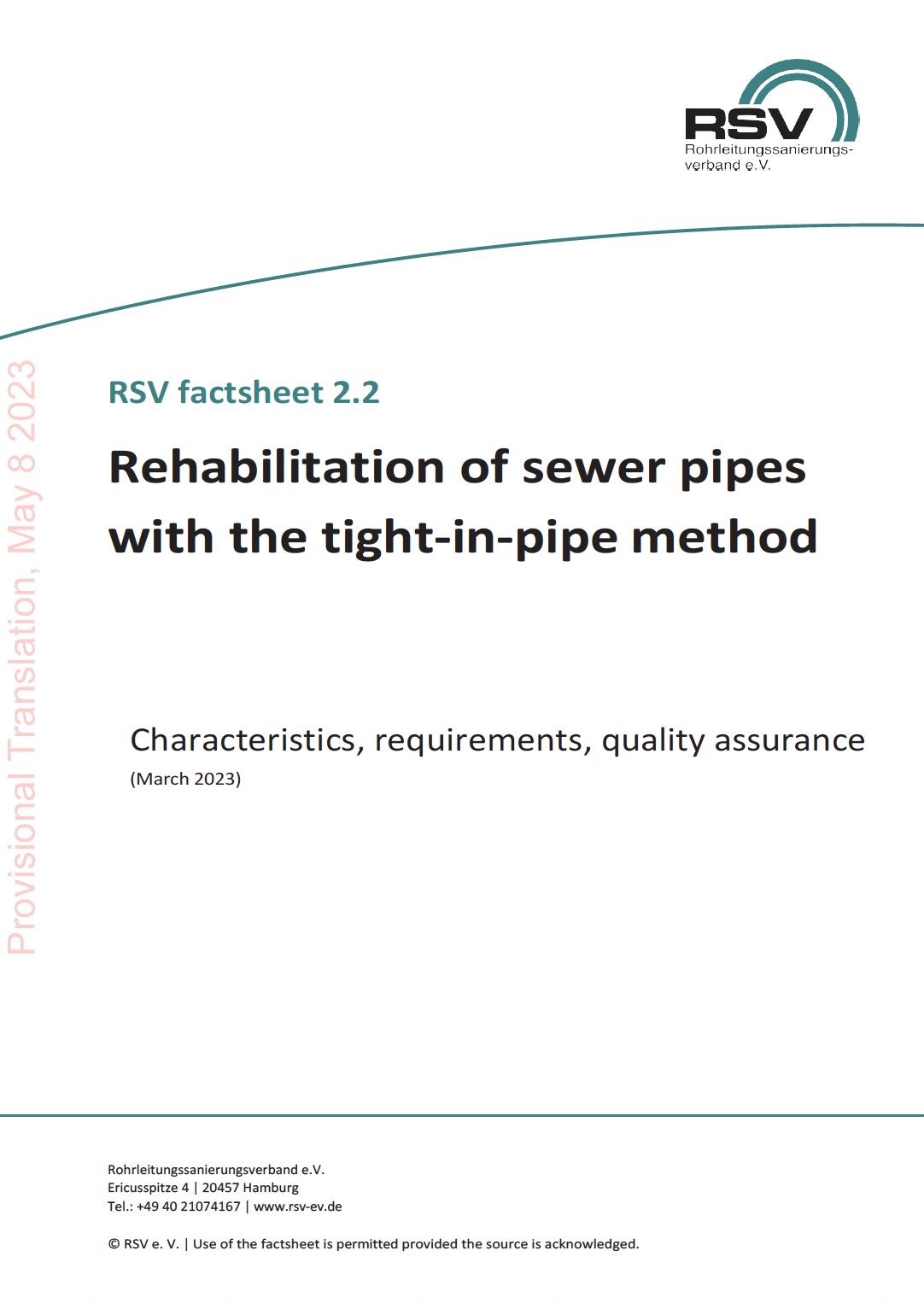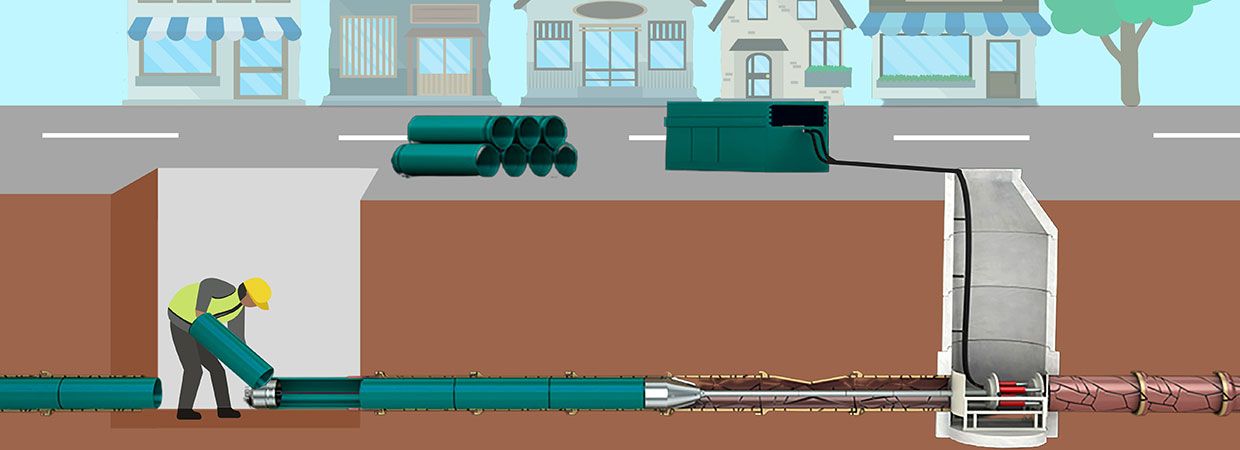english – New factsheet on the TIP method published in English
Now in English available: The factsheet on the "Tight-In-Pipe" rehabilitation method for free!
Since the start of the Ro-Ka-Tech, our latest RSV factsheet is available in English language. You can download it at the bottom of this page or at the publication site here. All RSV leaflets are available for free.
About the leaflet
The factsheet on the TIP method has been revised after several years of work. The working group - consisting of representatives of contractors, engineering firms, pipe manufacturers and network operators - presented the new sheet to the public at the iro Pipeline Forum in Oldenburg. Instead of printing it, the RSV had coasters produced with the QR code to the download area.
The improvements
If you compare the current edition of " Factsheet 2.2" with the one from 2012, a lot has changed. In the 41-page work, the working group has described the individual process variants in detail, added notes on service life and given concrete recommendations for occupational safety and quality assurance. According to the assessment of the working group, the process can be considered both a renovation process and a renewal process.
Renovation or renewal?
Classically, the Tight-In-Pipe method is placed in the category of trenchless "renewal", as it is mainly used for severely damaged pipes (old pipe condition IIIa according to DWA-A 143-2).
However, the technology is also attracting increasing interest from network operators who are looking for solutions for smaller and medium-sized pipe damage. In this respect, the TIP process is assigned to the "renovation" technology family when old pipe conditions I to III are approached. "Irrespective of the consideration of classification as a renovation or renewal method, the depreciation periods in the method can be considered as those of a new installation using the cut-and-cover method," the information sheet states.
Ecological aspects considered
"An important point that we have included in the factsheet for the first time is the question of ecological aspects," explains working group chairman Nico Schlenther. "We are being asked more and more frequently about CO2 compatibility and the use of plastics in the soil - keyword microplastics. In addition to the fact that it is a trenchless or low-trench process, we can make a clear statement here when using pipes made of PE and PP."

